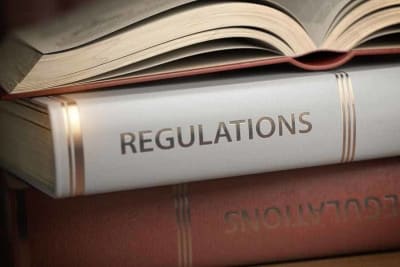When is a Rule 444 letter used?
A Rule 444 letter is required when a party is seeking:
- further and better particulars about the opposing party’s pleadings under rule 161;
- directions from the court about the conduct of a matter; or
- an order from the court to address the opposing party’s non-compliance with either the Uniform Civil Procedure Rules or a court order.
The Rule 444 letter must be sent to the opposing party before an application to a court for any of the above, and it must specify:
- the complaint;
- the relevant facts;
- the relief sought;
- why the relief should be granted;
- a deadline for the opposing party to respond by (at least three business days); and
- that the letter is written under Chapter 11, Part 8 of the UCPR.
A copy of the letter must be sent to every party who would need to be served or notified if the issuing party was applying to a court. The usual rules of service do not apply.
The receiving party must write back, by the nominated deadline, specifying:
- that the letter is a reply under rule 445 of the UCPR;
- any proposed action in response to the complaint; and
- if applicable, why the issuing party should not be granted the relief they propose to seek.
Only once the issuing party receives a response, or the deadline has passed, may that party apply to the court for an order.
The application (Form 9) must include the Rule 444 letter, the Rule 445 reply (if any), any other relevant correspondence between the parties, relevant responses from any notified party, and any affidavits the issuing party wants to rely on.
Further and better particulars
Rule 161 of the UCPR permits a party to apply for a court order for “further and better particulars” from the opposing party.
Particulars are necessary in a pleading to:
- define the issues for, and prevent surprise at, the trial;
- enable the opposing party to plead; and
- support a matter that must be specifically pleaded, such as damages, breach of contract or fraud (among others).
The particulars may be any information that clarifies or defends the allegation. This includes documents such as emails, contracts, patent specifications, or meeting minutes.
Court directions
Rule 367 of the Uniform Civil Procedure Rules allows the court to make any order or direction about the conduct of a proceeding as it considers appropriate, even when the order or direction may be inconsistent with another UCPR rule.
There is a range of directions a court may make, including to:
- limit:
- the time to be taken by the trial or hearing;
- the time to be taken by a party in presenting its case;
- the number of witnesses a party may call on a particular issue;
- the time to be taken in examining, cross-examining or re-examining a witness;
- the time to be taken in making an oral submission;
- the length of a written submission or affidavit; and/or
- require:
- copies of pleadings for use by the court before the trial or hearing;
- evidence to be given by affidavit, orally or in some other form;
- submissions to be made in a specific way, such as in writing or orally; and/or
- the parties, before the trial or hearing, to provide statements of witnesses they intend to call at a trial or hearing.
Compliance with the UCPR or court order
If the court finds that a party has failed to comply with the UCPR, it may:
- set aside all or part of the proceeding;
- set aside a step taken, or order made, in the proceeding;
- declare a document or step taken to be ineffectual;
- declare a document or step taken to be effectual; or
- make another order under the UCPR or that the court considers appropriate.
If the court finds that a party has failed to comply with a court order, it may on application:
- give judgment against that party;
- extend time for compliance with the order;
- give directions; or
- make another order.
How Gibbs Wright Litigation Lawyers can help
Call Gibbs Wright Litigation Lawyers today about any civil or commercial litigation matter for a confidential consultation.




